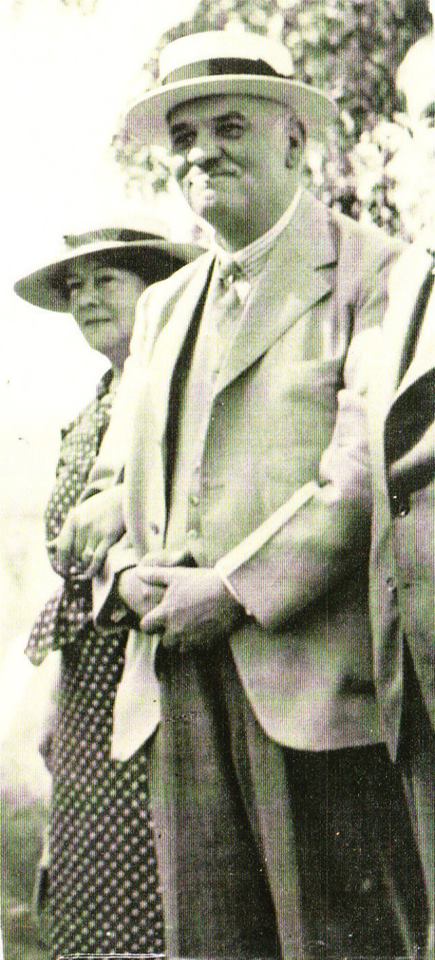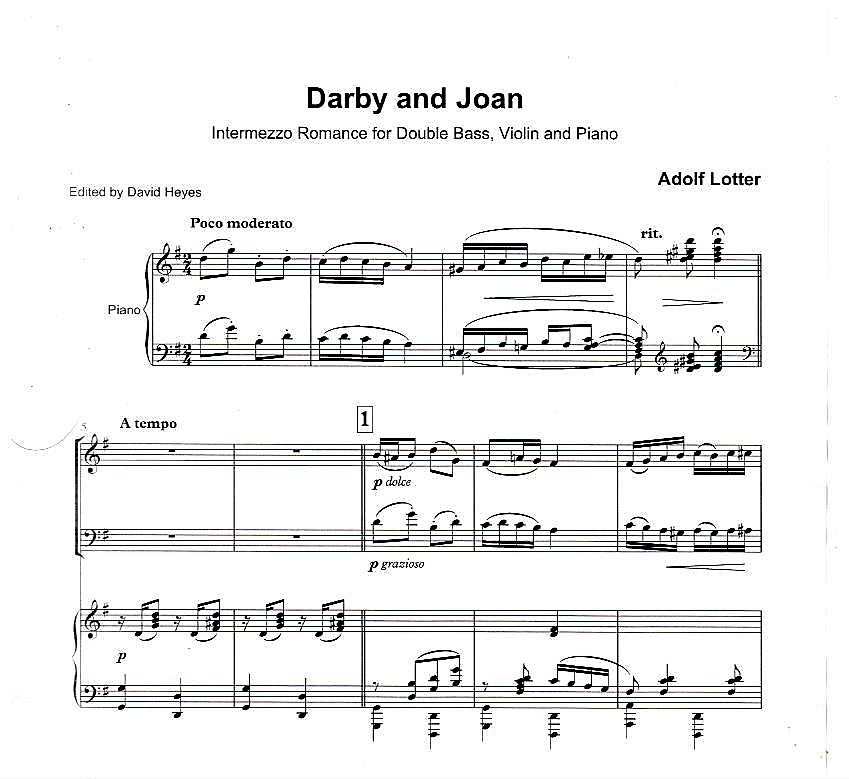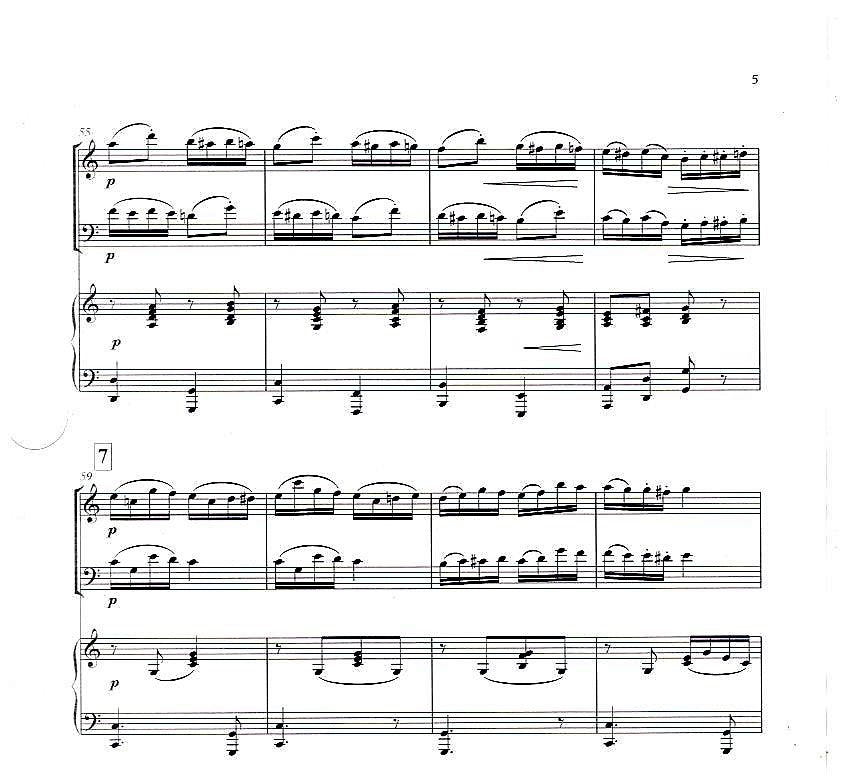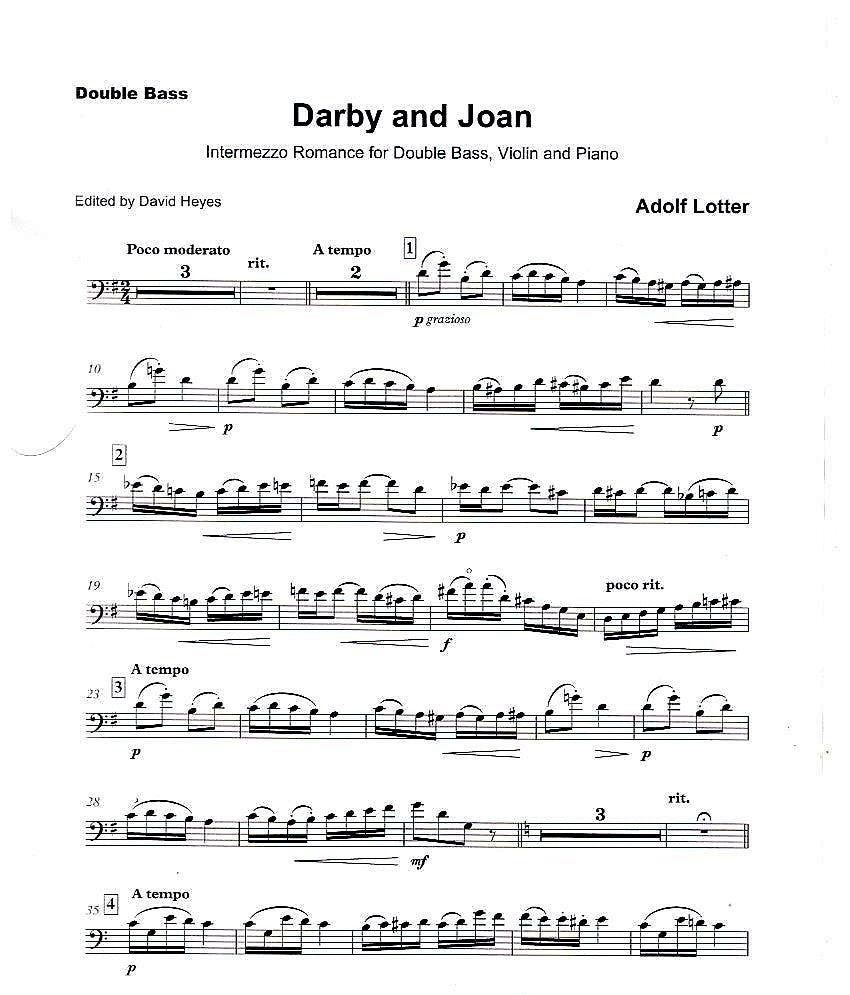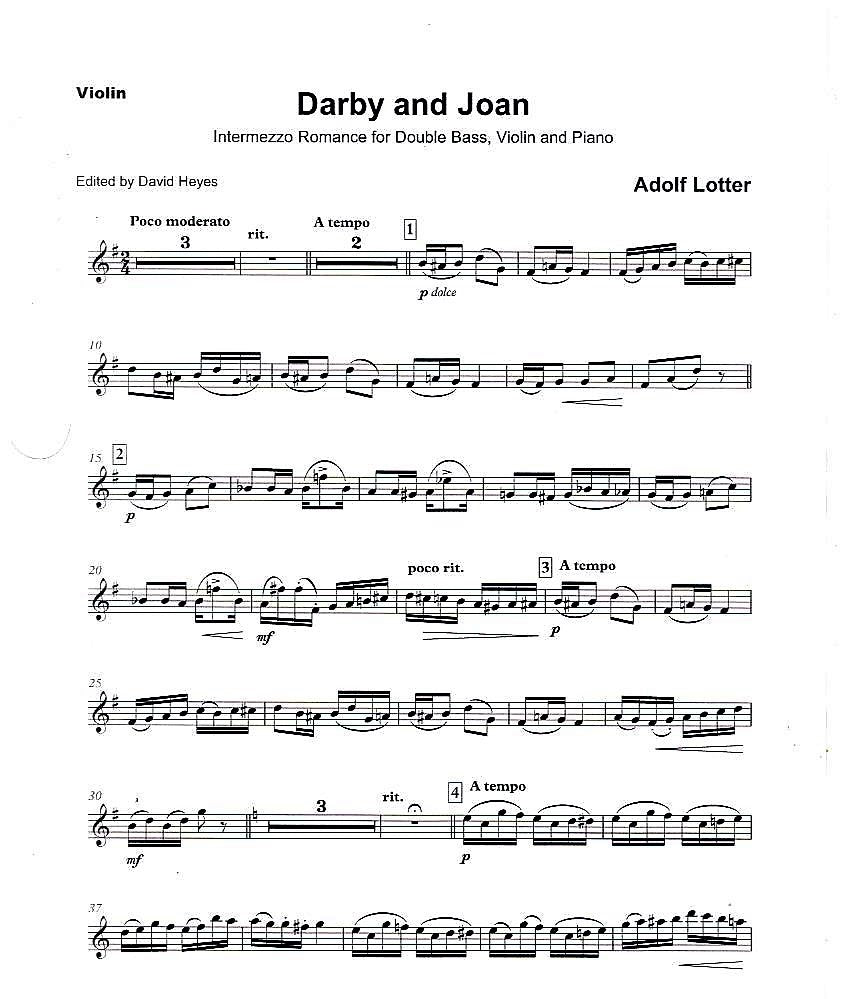David Heyes
Lotter: Darby and Joan for double bass, violin & piano
Lotter: Darby and Joan for double bass, violin & piano
Couldn't load pickup availability
About the Composition
Darby and Joan for double bass, violin, and piano Darby and Joan has been long out of print until Recital Music’s printed edition in 2000 and is a novelty intermezzo in the romantic salon style of the early part of the 20th century. The music is lyrical and melodic, with few technical challenges for the good intermediate player, and successfully partners the highest and lowest members of the string family. In one movement and full of lively music, this would be ideal for anyone who enjoyed playing Lotter's The Ragtime Bass Player.
Interestingly Lotter calls it an ‘Intermezzo Romance for Solo Double Bass, Solo Violin and Piano’, but the parts seem to be matched equally and neither the double bass nor the violin is more important than the other. He also suggests that Darby and Joan can also be played by cello and violin or bassoon and flute.
Darby and Joan was first published in 1939 by Melodeon, the composer’s own company, and exists in versions with piano or string orchestra accompaniment. The original edition includes his address (147 Golders Green Road, London N.W.11) which is now a hotel.
Double Bass is in orchestral tuning.
About the Composer
Adolf Lotter was born in Prague on 4 December 1871 and studied double bass with František Černý, and composition with Antonín Dvořák, at the Prague Conservatoire. He lived in London from 1894, until his death in 1942, and quickly established himself as one of the leading bassists of his generation, performing with many of the famous conductors of the day including Sir Henry Wood, Richard Strauss, Weingartner, and Sir Thomas Beecham. Lotter was a member of the Queen's Hall Orchestra for over thirty years (1898-1930), becoming Principal Bass in 1911, and also played with the London Symphony Orchestra, London String Players, Guildford Symphony Orchestra, and Glyndebourne Festival Orchestra (1935-36).
In 1899 Lotter was appointed Musical Adviser and Editor of Hawkes & Son (London), who published many of his orchestral works and arrangements for the next forty years. He composed and arranged over seventy works for orchestra, military band, string orchestra, or piano, mainly in a light and popular style.
